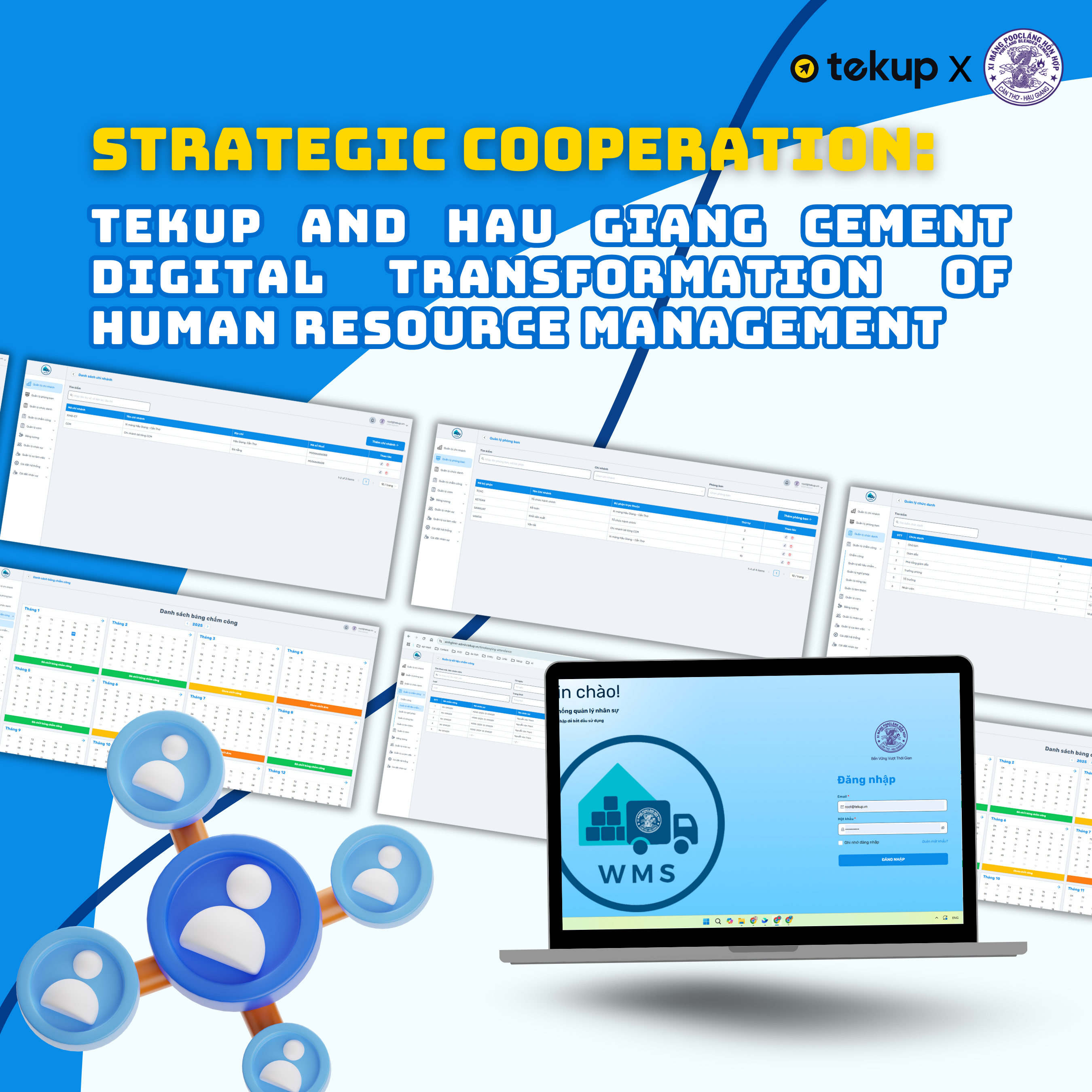In today’s rapidly digitalizing world, businesses often face tough decisions between developing a mobile or web application. Both options come with unique advantages and challenges, requiring careful consideration. With advancing technology and evolving consumer demands, businesses must weigh multiple factors to make the best development choice. The right decision can optimize operations and create positive customer experiences, driving sustainable growth in the digital era.

Recognizing these challenges, Tekup, with over 5 years of experience supporting various sectors from e-commerce to finance, healthcare, and education, continually seeks tailored solutions for each client. In this article, we’ll explore the benefits and obstacles associated with choosing web or mobile app development for your business.
First, let’s dive into the basics of web and mobile applications and examine their distinctive characteristics.
Web Application :Web applications are interactive websites that enable users to perform tasks online, such as shopping, managing accounts, processing data, or accessing digital content. Unlike mobile apps, they don’t require downloads or installations; they’re easily accessible on browsers like Chrome, Firefox, Safari, or Edge.
Web applications are typically built using popular programming languages like HTML, CSS, and JavaScript, which provide a flexible, attractive user interface. Additionally, powerful JavaScript frameworks like React, Angular, and Vue.JS are often employed to optimize user experience.
Web applications can meet a wide range of needs, from e-commerce systems and content management platforms to online learning tools and business management apps. With ease of updating and maintenance, web applications allow businesses to deploy changes quickly without disrupting users, creating an operational advantage.
Mobile Application:Mobile applications are software programs designed to run on mobile devices, such as smartphones and tablets. Unlike web apps, mobile apps must be downloaded and installed from app stores like iOS’s App Store or Android’s Google Play. Mobile apps offer a smoother user experience and integrate more closely with device features such as the camera, GPS, fingerprint sensor, and push notifications.
iOS and Android are the most popular platforms for mobile apps. For iOS, developers typically use Swift, Apple’s official programming language, or Objective-C. For Android, Java and Kotlin are the primary languages, with Kotlin growing in popularity due to its modern, safe, and optimized nature.
There’s also the option of cross-platform development, enabling apps to run on multiple operating systems with a single codebase. Tools like React Native, Flutter, and Xamarin have simplified cross-platform development.

Advantages and Disadvantages of Web Applications
Advantages:- Easy access: Users can access the app from any browser-equipped device without installation.
- Lower development costs: Web apps are generally more cost-effective than mobile apps, as a single version can serve all devices.
- Quick updates and maintenance: Updates only require refreshing the browser, so users don’t need to download new versions.
-
- Limited performance: Web apps often cannot fully utilize device hardware and software.
- Limited offline use: Many web apps require an internet connection, making offline access challenging.
Advantages and Disadvantages of Mobile Applications
Advantages:-
-
- High performance: Mobile apps usually perform better, delivering a smooth and fast user experience.
- Offline access: Users can access mobile apps even without an internet connection, providing convenience.
- Push notifications: Mobile apps can send push notifications to boost user engagement.
-
-
-
- Higher development costs: Mobile apps are more expensive to develop, especially when creating versions for multiple platforms.
- Platform-specific development: Developing for iOS and Android may require separate codebases.
-

When Should Businesses Use Web or Mobile Applications?
Choosing between web and mobile applications depends on business needs, target audience, and desired features. Here are some criteria to consider:
Web Application:-
-
- Prioritizing broad accessibility: Web apps are accessible from any browser, regardless of device, enabling rapid reach to a broad audience without requiring downloads.
- Quick updates and low maintenance: Updates occur on the server, providing all users with the latest version immediately.
- Lower cost: Developing and maintaining a web app is generally less costly than a mobile app, especially when device-dependent features (like GPS or the camera) aren’t necessary.
- Suitable for B2B and internal management: For B2B or internal management applications, web apps are often ideal.
-
-
-
- Enhanced user experience: Mobile apps generally offer a smoother, more interactive experience than web apps, especially for touch-based interactions and quick actions.
- Hardware feature integration: If the app needs GPS, a camera, or sensors, mobile apps can better leverage these features.
- High-performance and stability needs: Gaming, image-processing, and data-intensive apps often perform best as mobile apps.
- Frequent user interaction: Mobile apps support push notifications, keeping users engaged and delivering real-time updates.
-
In summary, businesses should consider features, budget, and audience when selecting the optimal platform or may invest in both if resources permit to achieve maximum reach and user experience.

At Tekup JSC, we are more than just a technology partner; we’re a bridge to help your business excel in the digital era. With professional web and mobile app development services, we support you from idea to practical solution, delivering exceptional user experiences and performance. Let Tekup JSC help you build the digital foundation you need to grow and succeed!



